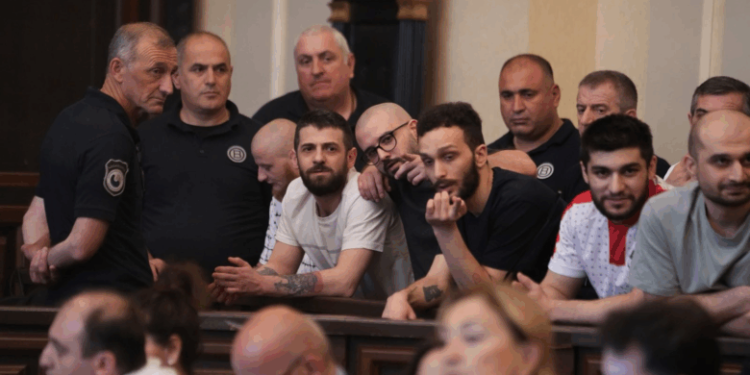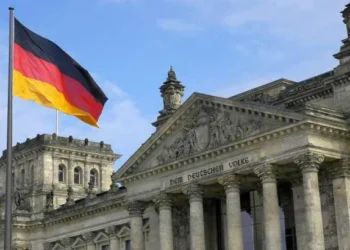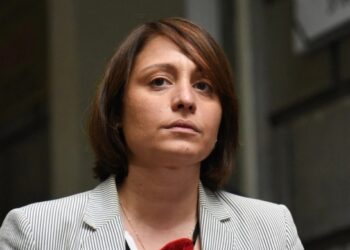As pressure mounts on the Georgian Dream government both at home and abroad, reports have emerged that protesters detained during pro-European Union demonstrations are being offered pardons in exchange for public apologies — a move that critics view as an attempt to defuse growing dissent and avoid judicial scrutiny.
The revelations come amid delays in verdict announcements in multiple protest-related trials. Judges in at least two prominent cases have postponed rulings, citing the need for further deliberation. Meanwhile, dozens of protesters have already been sentenced to jail time, and many more are awaiting verdicts. Public opinion is overwhelmingly in favor of their release.
Actor Andro Chichinadze, one of eleven protesters detained on group violence charges, made a defiant statement during his July 29 court appearance, says Netgazeti’s live blog. “As time passes, I keep hearing that if I apologize, I’ll be released,” he said. “They should offer that pardon to the police officers who were chasing people on Rustaveli [Avenue]. I don’t need a pardon. These charges are fabricated.”
Chichinadze did not name the source of the offer, but he claimed similar suggestions had been made to other detainees. His fellow defendants — Onise Tskhadadze, Jano Archaia, Giorgi Terishvili, Irakli Kerashvili, and Luka Jabua — echoed his stance, rejecting any suggestion of a deal tied to an apology. The implied pardons would likely come from President Mikheil Kavelashvili, a Georgian Dream appointee.
This follows a controversial public offer from Kavelashvili earlier this year, when he proposed pardons for jailed opposition leaders — including Nika Gvaramia, Nika Melia, and others — if they agreed to participate in upcoming local elections scheduled for October 4. The opposition, fractured over whether to engage in the vote or boycott it, rejected the conditional offer outright.
As the issue of political imprisonment intensifies, it has drawn increasing condemnation from international observers. European diplomats have repeatedly raised concerns over what they describe as arbitrary and politically motivated detentions. Brussels has warned of potential consequences, including suspension of Georgia’s visa-free travel agreement with the EU, if democratic norms are not restored.
Based on a July poll by the Institute of Social Studies and Analysis (ISSA), 73% of Georgians — including 40% of Georgian Dream supporters — believe the detained protesters should be released. “The public doesn’t believe these young people or journalist Mzia Amaghlobeli are criminals, despite what government propaganda claims,” said ISSA Board Chairman Iago Kachkachishvili.
Two high-profile cases — those of Dr. Giorgi Akhobadze and war veteran Anatoli Gigauri — have seen unexpected delays in verdicts. Akhobadze faces serious drug charges that he claims are politically driven, while Gigauri is charged with assaulting a police officer despite video evidence allegedly showing the officer striking first. Both plead not guilty. Judges have postponed decisions in both cases beyond the initially scheduled July 28 dates.
In a notable shift, prosecutors recently downgraded charges against protester Saba Skhvitaridze from assaulting an officer to minor bodily harm. The move came after his defense argued he acted in self-defense and could not have known the man was a police officer.
Courtrooms across Georgia are operating at full pace this summer, with group violence hearings being held multiple times a week. Lawyers say the urgency may reflect efforts to issue verdicts before the legal nine-month limit for pre-trial detention expires. While several protesters have already received prison sentences, recent judicial hesitations have sparked hope among opposition groups that even loyalist judges are starting to break ranks.
“The judges have started rebelling against political orders en masse,” claimed jailed opposition figure Nika Gvaramia in a July 29 Facebook post. He claimed that judges are increasingly uncomfortable with their role in politically charged trials, facing growing public backlash and social isolation.














